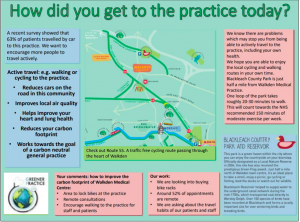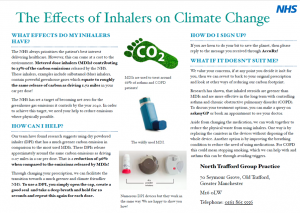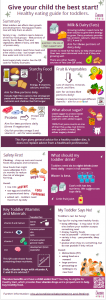
Sustainability in the Medical Curriculum: QEPEPs are going Green!
Blog by Dr Sabia Dayala, Community QPEP Lead, MBChB Programme. Banner Image: Sabia’s own photo. Landscape view of Catbells, Lake District, England.
For those of us who browse the British Medical Journal (BMJ), you will have spotted that issue 8406 on the 11th November 2023 directly addressed clinicians on its front cover regarding sustainable practice with a deeply empowering question, “what can I do?”. Never has this question been so essential to ask all of us who teach the future healthcare workforce.
I asked myself that very question in the summer of 2022. After much deliberation, I created the Green QEPEP toolkit. This is an innovative resource for students and supervisors to support the integration of sustainable healthcare into community focused Quality Improvement Projects (QIPs) in the Quality and Evidence Personal Excellence Pathway (QEPEP) module of the medical (MBChB) programme. The QEPEP module is undertaken by final year (Year 5) medical students in their place of practice.
The Green QEPEP toolkit was introduced in 2022-23, recognising that prompt action was crucial if we are to make progress towards the NHS net zero target by 2040. Supervisors demonstrated their determination and dedication to this cause, by offering 86 community focused projects that were directly linked to the principles of sustainable clinical practice (a huge increase from 4 projects in 2021-22!).
Interestingly, our data (see table below, presented at AMEE 2023) suggests that there were more Green QEPEPs available in 2022-23 than were selected. This indicates that the level of student interest currently lags behind that of supervisors.

Table to illustrate Green QEPEP capacity and uptake in 2022-23.
To address the disparity, we have delivered 3 evening sessions of optional training for students to help them understand the importance of sustainable healthcare and how to integrate it into their QEPEP. These optional training sessions will also be delivered during and after students make their selections, equipping them with the knowledge and skills needed to fully engage with Green QEPEPs. To support supervisors, we have delivered 3 evening training workshops this month. These sessions focused on the making the most of the Green QEPEP Toolkit which has received recognition from the Centre for Sustainable Healthcare and is available to access on their website.
What’s next?
- We want to disseminate the Green QEPEP toolkit widely by getting more students and colleagues involved in primary (GP) and community care.
- We will showcase the work of our students at our first medical education conference on June 26th, hoping to inspire students and colleagues.
- We want to pilot, possibly with small adaptations, the Green QEPEP toolkit to colleagues in the secondary care setting (hospital/clinic)
As Environmental Sustainability gets embedded into the entire medical curriculum, starting this year with inductions in Y1 and Y2, we hope that, soon, students will arrive in Y3 (APEP) and Y5 (QEPEP) eager and ready to improve sustainability in the NHS via their projects, building on projects from previous years where needed.
I am excited to share this great news with you and will post further on how we get on with this endeavour in 2023-24. Do take a look at some of our example QEPEP projects below and for further information please contact Dr Sabia Dayala: sabia.dayala@manchester.ac.uk. X (formally Twitter): @DayalaSabia



The content in this blog aligns with the following United Nations Sustainable Development Goals: Good health and wellbeing (3), Reduced inequalities (10), Climate action (13) and Life on land (15).
To find out more about Environmental Sustainability: visit the Faculty’s intranet page, website or contact srbmh@manchester.ac.uk to receive our next ES Good Newsletter. For more information on Environmental Sustainability at the University watch this short film or visit their website.

0 Comments